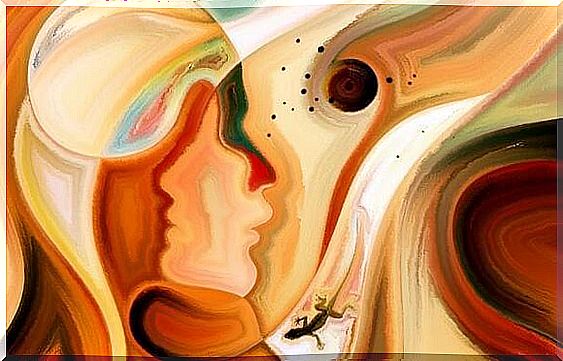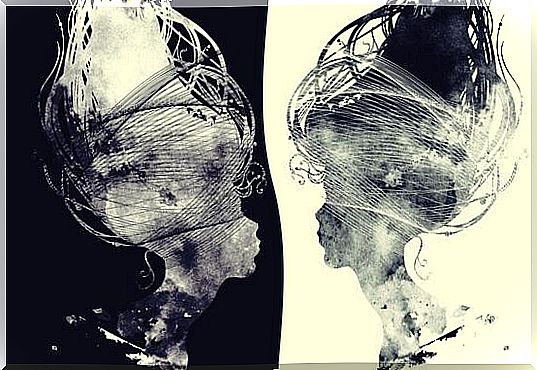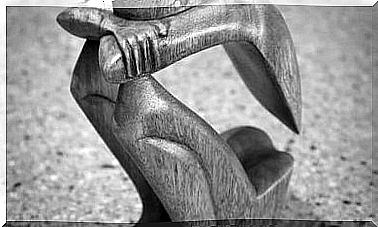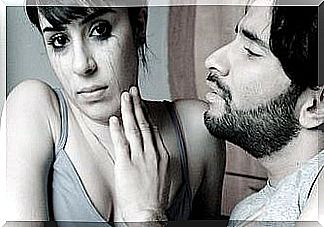The Best Revenge Is To Be Happy

The best revenge is that which is not carried out. The best rematch is to smile at hatred, stifle anger, and show others that we can be happy. Because there is no better strategy than that of acting calmly and wisely, moving forward with a steady gaze and a rested heart, with the awareness that there are burdens that shouldn’t be carried around for too long.
Confucius said that before embarking on the journey of revenge we must dig two tombs. Ours and that of our opponent. Philosophy has always offered us reference systems for reflecting on the action of revenge and the moral consequences linked to this practice as popular as it is “attractive”.
We used the last term, or “attractive”, for a specific fact. We are faced with a human behavior that has always attracted our attention, we cannot deny it. Film writers and directors are well aware that revenge fascinates us. There are those who say that it is almost like a drug: prescribed in small doses it relieves, but consumed in large quantities can be lethal.
At this juncture, how can we fail to mention the great literary example of Edmond Dantès or the Count of Monte Cristo. The unforgettable character of Alexandre Dumas teaches us that the best revenge is served cold, unhurried and perfectly calculated. Agatha Christie, for her part, makes us participate in a complex and equally violent plot in her novel “Ten Little Indians”, to show us that evil or evil deeds must be avenged in the right way.
Revenge attracts us and, at times, we even go so far as to justify it. But what psychological processes underlie this act?

Revenge: a human desire
Most of us, at some point in life, have felt offended, hurt or resentful to such an extent that the shadow of that bitter and funereal but always tempting figure passes through our heads: revenge. Our moral compasses lose the north and we imagine forms, methods and situations in which that pain that grips us returns to the person who caused it to us.
But one thing that is good to clarify from the beginning and that is reminded us by the psychologist Gordon E. Finley, a great expert in criminal behavior, is that revenge has little to do with morality. Revenge is an impulse, and it is the catharsis of anger and hatred. To give another example, as a work conducted by Professor Ernst Fehr of the University of Zurich reveals, more than 40% of the decisions that are made in the business world have as their sole objective “revenge” on a rival.
The same happens with crimes, more than half are committed for rancor accumulated towards someone and for the expressed desire to carry out a revenge. All this forces us to become aware that the best revenge does not exist, because beyond the results that we can obtain with it, we turn into aggressors and, in this way, we acquire the same moral quality as those who caused us the damage.

The best revenge
We could justify that the best revenge is that which does not take place because the common and moral feeling dictate it, the religious, spiritual and even philosophical theories to which we very often rely. Instead, let’s analyze this statement from a purely psychological point of view.
For example, have we ever wondered what causes certain people to constantly use revenge ? Let’s see it below.
Traits of vengeful people
- A person who reacts to any offense, large or small, in a vindictive form, has poor emotional management and a poor ability to know each other (when someone offends me, I release my anger and hatred).
- These are profiles who believe they possess absolute or universal truth. They are law and justice, the clear example of what every person should be.
- They also present a dichotomous thought: either you stay with me or against me, things are done either good or bad.
- They usually have a very low degree of empathy.
- They do not forgive and do not forget, they live subordinate to their past and resentment.

As we see, from a psychological and emotional point of view, revenge or the desire for it offers no benefit. This impulse, this need or as we want to define it, consumes integrity and not cancels any favorable judgment, but also completely limits the opportunity to advance as a person to build a more optimal and happy reality.
We may be drawn to that sort of executioner from the comics or the Edmon Dantès novels. However, that hides nothing but suffering and loneliness. The best revenge, therefore, will always remain the one that is not carried out or, to put it better, living well and that others see us happy is undoubtedly the best revenge of all.









